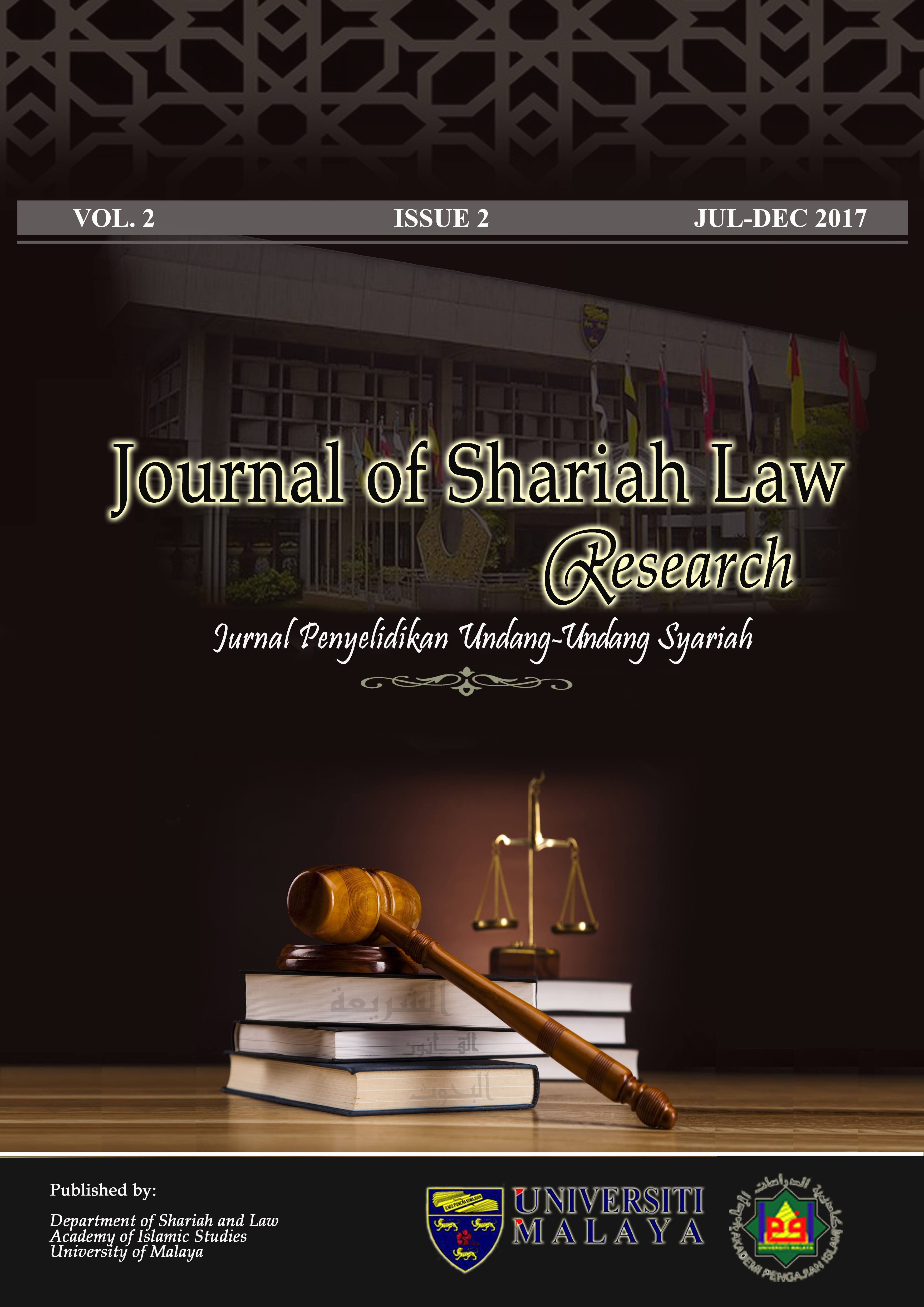SEMAKAN KEHAKIMAN KESALAHAN JENAYAH SYARIAH DI MALAYSIA: ULASAN LITERATUR
DOI:
https://doi.org/10.22452/http://doi.org/10.22452/JSLR.vol2no2.3Abstract
Shariah Criminal Offences in Malaysia has been codified in all
States Shariah Criminal Offences Enactment. The primary basis
of authority is as enshrined under List II of the Ninth Schedule
of the Federal Constitution which empowers the Shariah
Court to hear any cases involving Muslims and subject matter
governed under the Shariah laws. Article 121 (1A) of the Federal
Constitution stipulates that Civil Court shall have no jurisdiction
in respect of any matter within the jurisdiction of the Shariah
Court. However, the purpose of the amendment has not been
fully achieved as Civil Court still could exercise its review over
matters enforced under the Shariah laws. Judicial review is an
administrative process available to an aggrieved individual or
corporation challenging the validity of the decision of public
authorities, including Shariah enforcement body. Notably, prior to the amendment, there were many cases of shariah related
been tried and reviewed in Civil Courts including family and
Shariah criminal offences. The amendment has to certain extents
succeeds in reducing such review. To date, civil court continues
exercising this power particularly in Shariah criminal offences
on the basis of inconsistency with the Federal Constitution. This
article identifies and analyse writings and works of scholarly
nature which relate to civil court judicial review and its relation to
Shariah laws in Malaysia, in particular the review over Shariah
criminal offences in Malaysia. It employs library research in full.
The study has found that not much works of scholarly nature had
been done in this area, though previous works had paved way to
the present study.








